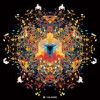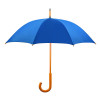Random thought: Windows is largely successful because of Piracy
Windows as a software package would have never been affordable to individuals or local-level orgs in countries like India and Bangladesh (especially in the 2000’s) that are now powerhouses of IT. Same for many SE Asian, Eastern European, African and LatinoAmerican countries as well.
Had the OS been too difficult to pirate, educators and local institutions in these countries would have certainly shifted to Linux and the like. The fact that Windows could be pirated easily is the main factor that led to its ubiquity and allowed it to become a household name. Its rapid popularity in the '00s and early ‘10s cemented its status as the PC operating system. It is probably the same for Microsoft Office as well (it is still a part of many schools’ standard curricula).
The fact that Windows still remains pirateable to this day is perhaps intentional on Microsoft’s part.








Add comment